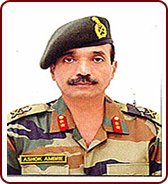London, January 9
A British website set up to catalogue the last days of Netaji Subhas Chandra Bose has released what it claims are eyewitness accounts of the day he was reportedly killed in a plane crash in Taiwan on August 18, 1945.
The latest set of documents quote several people who were reportedly involved in the matter related to the accident as well as two British intelligence reports that revisited the crash site to establish the facts.
The website also sheds light on what may have been the freedom fighter’s dying words, which reflected his devotion to the cause of India’s freedom.
“For 70 years, there have been doubts in certain circles whether such a tragedy at all took place. Four separate reports each corroborating the other constitute irresistible evidence to the contrary,” says a statement issued by www.bosefiles.info.
The documents say that early in the morning on August 18, 1945, a Japanese Air Force bomber took off from Tourane in Vietnam with Bose and 12 or 13 other passengers and crew. Also on board was Lt Gen Tsunamasa Shidei of the Japanese Army and the planned flight path was Heito-Taipei-Dairen-Tokyo.
The three-member Netaji Inquiry Committee, instituted by the government of India in 1956 and headed by Major General Shah Nawaz Khan of Bose’s Indian National Army (INA), was told that since “the weather was perfect and the engines (of the aircraft) worked smoothly” the pilot decided to overfly Heito and proceed straight to Taipei, arriving there late morning or early afternoon.
Major Taro Kono, a Japanese Air Staff Officer and one of the passengers, told the committee: “I noticed that the engine on the left side of the plane was not functioning properly. I, therefore, went inside the plane and after examining the engine inside, I found it to be working all right”. He added the accompanying engineer “also tested the engine and certified its air-worthiness”.
Captain Nakamura alias Yamamoto, the ground engineer in charge of maintenance at the airport, concurred with Major Kono “that the engine of the left side was defective”.
He said the pilot told him “it was a brand new engine”.
He went on to say: “After slowing down the engine, he (the pilot) adjusted it for about five minutes. The engine was tested twice by Major Takizawa (the pilot). After being adjusted, I satisfied myself that the condition of the engine was all right. Major Takizawa also agreed with me that there was nothing wrong with the engine.”
However, soon after the aircraft was airborne there was, according to Colonel Habib ur Rahman – Bose’s ADC and a co-passenger, a loud explosion.
He described it as “a noise like a cannon shot”.
Nakamura, who was watching from the ground, said: “Immediately on taking off, the plane tilted to its left side and I saw something fall down from the plane, which I later found was the propeller.”
He also maintained that the maximum height gained by the aircraft was 30–40 metres.
He estimated “the plane crashed about 100 metres beyond the concrete runway” and immediately caught fire in the front portion.
Colonel Rahman recounted: “Netaji turned towards me. I said ‘Aagey Say Nikaleay, Pichey Say Rasta Nahin Hai’. (Please get out through the front; there is no way in the rear.)”
“We could not get through the entrance door as it was all blocked and jammed by packages and other things. So Netaji got out through the fire; actually he rushed through the fire. I followed him through the same flames.
“The moment I got out, I saw him about 10 yards ahead of me, standing, looking in the opposite direction to mine towards the west. His clothes were on fire. I rushed and I experienced great difficulty in unfastening his bush-shirt belt. His trousers were not so much on fire and it was not necessary to take them off.”
Rahman was in woollen uniform, whereas Bose was in cotton khakis, which, it was assessed, caught fire more easily.
Rahman added: “I laid him down on the ground and noticed a very deep cut on his head, probably on the left side. His face had been scorched by heat and his hair had also caught fire and singed.
“Netaji enquired from me in Hindustani: Aap Ko Ziada To Nahin Lagi?” (Hope you have not been hurt badly). I replied, ‘I feel that I will be all right. About himself he said that he felt that he would not survive.’”
Bose added: “Jab Apney Mulk Wapis Jayen To Mulki Bhaiyon Ko Batana Ki Mein Akhri Dam Tak Mulk Ki Azadi Ke Liyay Larta Raha Hoon; Woh Jangi Azadi Ko Jari Rakhen. Hindustan Zaroor Azad Hoga, Oos Ko Koi Gulam Nahin Rakh Sakta. (When you go back to the country, tell the people that up to the last I have been fighting for the liberation of my country; they should continue to struggle, and I am sure India will be free before long. Nobody can keep India in bondage now.)”.
Lieutenent Col Shiro Nonogaki, who was on the flight, said: “When I first saw Netaji after the plane crash, he was standing somewhere near the left tip of the left wing of the plane. His clothes were on fire and his assistant (Col Rahman) was trying to take off his coat.”
There were variations in the details provided by Rahman, Nonogaki, Kono, Takahashi and Nakamura. They were giving evidence 11 years after the accident.
But in essence there was no disagreement between their testimonies on the fact of the crash and Bose suffering severe burns and injuries as a consequence, the website notes.
Netaji was rushed to the nearby Nanmon Military Hospital in a critical condition. In September 1945, British authorities in India sent intelligence teams comprising of Messrs Finney and Davies, HK Roy and KP De to Bangkok, Saigon and Taipei to enquire about the whereabouts of Bose and, if possible, to arrest him. Instead, they returned with the story of the crash. — PTI



















































































































